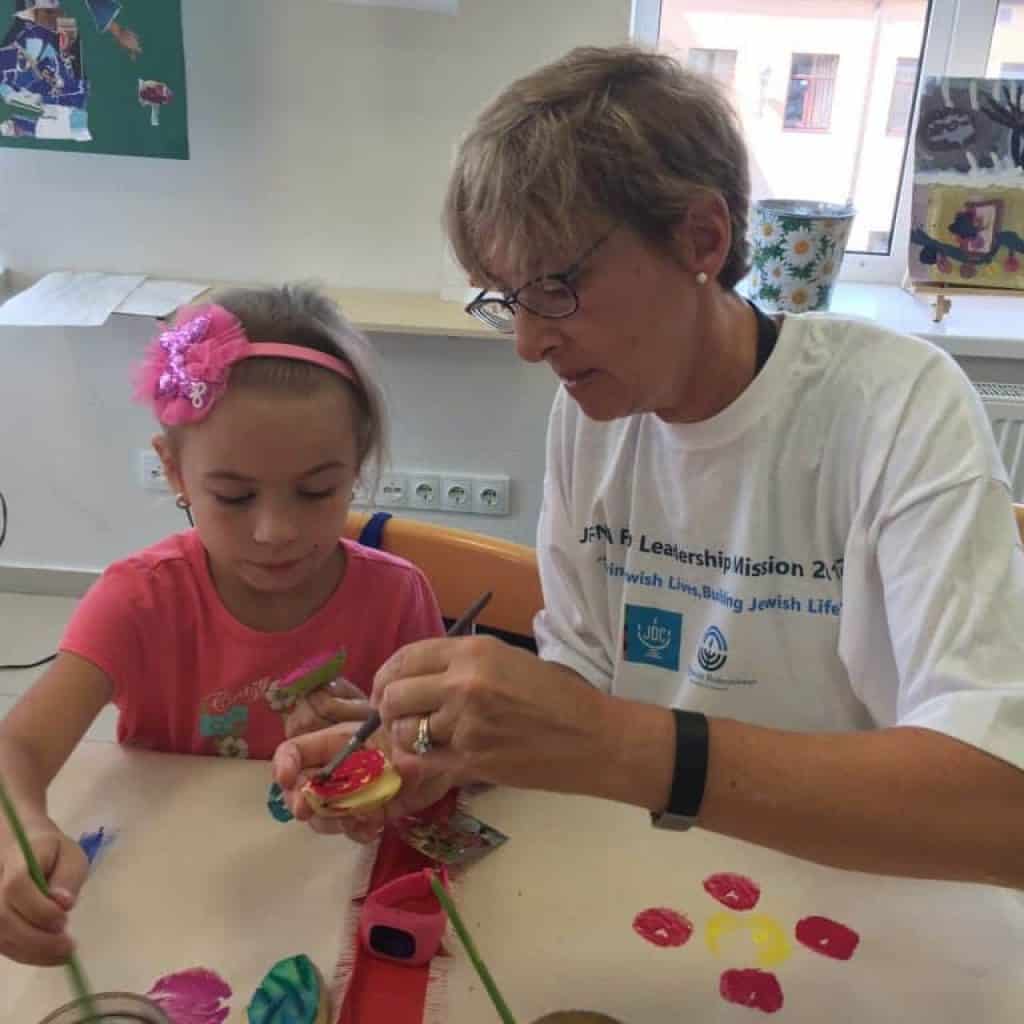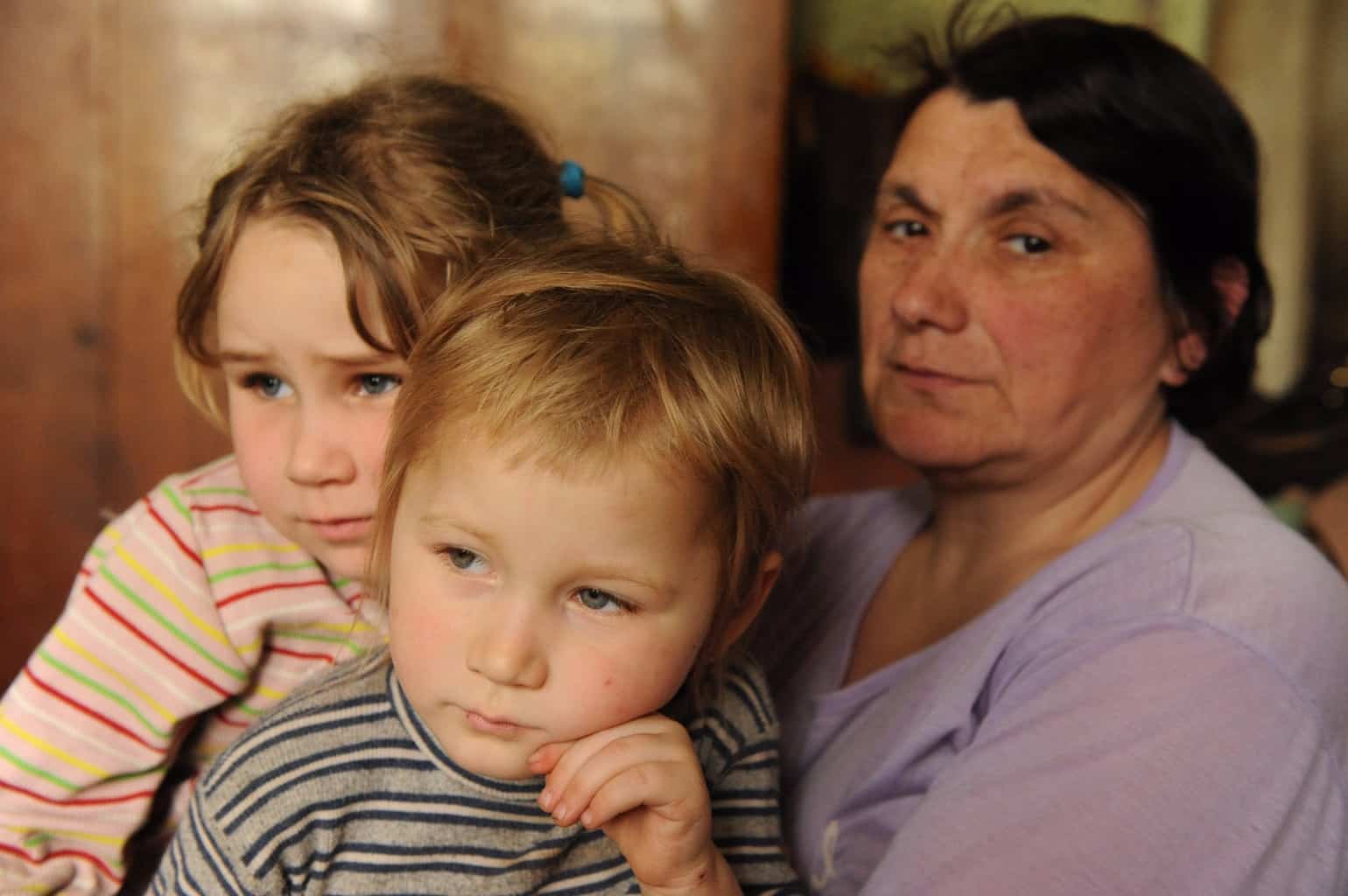Jewish families in Ukraine have benefited from donor gifts to Memphis Jewish Federation’s Annual Community Campaign for years, through partner agencies on the ground like JDC, JAFI and World ORT. To meet needs emerging in the wake of war every day, Memphis Jewish Federation has joined Jewish Federations of North America’s $36 million national emergency campaign and is calling on the Memphis community to give.
Responding quickly and efficiently to the Russian invasion of Ukraine, Memphis Jewish Federation has joined the Jewish Federations of North America’s (JFNA) $36 million emergency campaign to provide humanitarian assistance to vulnerable Jewish populations living in Ukraine. Funds will be allocated through Jewish Federations’ core partners, The Jewish Agency for Israel (JAFI), The Joint Distribution Committee (JDC), World ORT, and others who are on the ground in Ukraine, and will provide critical welfare where it is needed most and support to protect and safeguard Ukraine’s Jewish community as well as Jews in neighboring countries.
With life completely upended across the country, the needs are extraordinary and expanding. Hundreds of thousands are fleeing the conflict zone, with similar numbers trapped in war-torn cities, towns, neighborhoods, and apartment blocks. Food, water, and resources are in short supply and dwindling. Scores of citizens are sheltering in subway stations and basements, while many more take up arms for the first time in their lives to repel battalions of trained and coordinated soldiers. Support is needed immediately, and likely for months to come.
Emergency funds collected will be put to swift and targeted use, supporting urgent necessities like community security, shelter for the displaced, emergency needs in Jewish schools, and aliyah-related assistance. This support comes at a critical time to build on decades of effort in Ukraine, driven by donors’ gifts to Federation’s Annual Community Campaign.
“Memphis Jewish Federation and our parent organization JFNA have long-established relationships with partner agencies around the world. Anywhere there are Jews, we raise funds to provide critical services to those who are in vulnerable situations, like the conflict in Ukraine happening right now,” said Federation Board Chair Cindy Finestone, who visited Kyiv in 2017 as a Federation delegate. There, she sat in the tiny apartment of an 83-year-old retired librarian living on a monthly pension of $85 a month. Unable to walk well down stairs, the woman was all but home-bound and dependent upon a JDC stipend for food and medicine to live with a modicum of dignity and comfort. And this was before her city was besieged by the Russian military.
“The situation in Ukraine today is very troublesome,” said Cindy. “I think about the woman I met and the thousands like her who are facing displacement, lack of food and necessities, and constant threats to their lives. But this is what Federation is built for and what we do. We provide a safety net for those in need around the world.”

In 2017, a Memphis Jewish Federation contingent visited Kyiv to see the impact of Federation funding through overseas partners. In Kyiv’s Holam JCC, Federation Board Chair Cindy Finestone painted with young children and learned folk dances from a group of elderly dancers.
Ukraine’s Jewish community numbers about 200,000 people and close to 300 Jewish organizations dispersed over some 100 towns and cities, with the majority concentrated in Kyiv. Since the Russian invasion of Crimea in 2014, Ukrainian Jews have been profoundly affected by political and economic instability, and Jewish Federations and their partner agencies have provided ongoing support for communal needs and humanitarian aid.
While action is critically needed to address emergency needs emerging by the hour in the wake of war, it’s worth noting that in addition to Jewish Memphis’ long history supporting Ukraine’s Jews through Federation, there are personal, tangible connections to the country and its people as well.
A Federation Board Member who supports the Annual Community Campaign in Memphis as a Lion of Judah, Alla Olswanger-Lubin is a Ukrainian immigrant with first cousins and friends still living in Ukraine. As of this writing, she hasn’t heard from her Ukrainian family or high school friends living in Kyiv since the invasion began.
“It’s just horrible, but I’m grateful that my Federation can contribute to solutions,” she said.
In the heart of Jewish Memphis, Plough Towers is home to many Ukrainian immigrants, Jewish evacuees from the Former Soviet Union during the resettlement period in the 1970s and 80s through what is now known as the Wendy & Avron B. Fogelman Jewish Family Service. Executive Director Leigh Hendy reports that she’s seen a change in the demeanor of this tight-knit group of residents since the invasion began, and has been touched by conversations she’s had with them and their adult children, most Ukrainian-born.
“One resident’s daughter has been devastated through this, because she still has especially close friends there. She could barely talk without crying when she told me about talking to her friend who was sheltering in her apartment,” said Leigh. “This woman can’t go down to the building’s basement where she would be safer because of her asthma, and while the two were talking (the Memphis woman) could hear sirens going off warning of an imminent attack or explosion. It was so personal to her, which made it feel personal to me. I know that our Ukrainian families really feel this war, the sadness and fear of it.”
As of this writing, Russian forces have penetrated into the city of Kharkiv, through so far making little progress as they face stronger than expected resistance from Ukrainian armed forces and citizen volunteers. Before the Holocaust, Kharkiv’s Jewish population constituted an estimated 20% of the city but was devastated by the Nazis and subsequent Soviet rule. However, since the collapse of Communism, the city has experienced a remarkable resurgence of Jewish life. For the last several years, Memphis Jewish Federation has made an annual grant of $15,000 to support the Jewish community there, particularly in the form of food, medicine, heat, and homecare for some 6,500 Jewish poor and elderly in the region.
“Memphis has always stepped up to meet the needs of Jewish communities a mile away or even 5600 miles away in Ukraine. Our community stands together with Ukraine and our fellow Jews who need to escape or survive,” said Scott Vogel, Board Chair of Jewish Community Partners, which operates Memphis Jewish Federation. “With the war, the stakes are completely different and the situation much more urgent. But because of the long relationships we’ve had with them, I know JAFI, the JDC, World ORT, and their on-the-ground partners can be trusted with this difficult job of caring for our Ukrainian brothers and sisters.”
Through JAFI, Federation gifts bring Shlichim to Ukraine, send Ukrainian youth to Israel for immersive programs, support community security, and support Ukrainian Jews interested in making aliyah. JDC uses the funding to support Hesed centers across 1,000 locations, supporting 40,000 Jews living in poverty. Through World ORT, Jewish Federations have played an important role in the renewal of Jewish life through Jewish day schools, vocational training, and more. Federation money also supports JCCs and Jewish youth programs to help younger generations reimagine Jewish life where it once was all but decimated.
“I have trouble verbalizing how important it is for us to support the Jews of Ukraine who can be completely alone, if not for the supported social service programs that Federation dollars support,” said Scott Notowich, Federation’s Chair of Israel & Overseas. “I once sat in a Holocaust survivor’s living room listening to her tell me that if the Federation-funded social worker didn’t visit regularly to make sure she was taken care of, she would be totally alone in the world. She looks at this helper buying her groceries and visiting her in her home as a daughter. Today in Ukraine, there are scores of elderly survivors who are completely unable to leave their apartments and assisted living centers, and welfare visits can’t happen because of the danger. But our partners are doing everything they can, and even working to invent new ways, to make sure these vulnerable people aren’t forgotten.”
This article contains elements previously appearing in Tennessee Lookout’s article Ukrainians in Tennessee worry for safety of family and friends, by John Partipilo and Dulce Torres Guzman.
